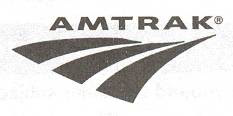This depot, which is still in use by Amtrak, is of uncertain (at least to me) origin. I do not know when it was built. But I do know that the town it serves is a thorough railroad town even in this day and time.
Knox County Illinois, Galesburg is the county seat of Knox County, was founded in 1825 and the first settlers arrived shortly thereafter. Things were put on hold for a while in that area when the last major dispute between the settlers, and those who had been there first, erupted into what became known as The Blackhawk War. This affair was chiefly noted for two things, first, it was the last attempt east of the Mississippi to stop the settlers, and a young man, one A. Lincoln, was elected a Captain of his militia company that was raised to do battle on the side of the settlers.
By 1841 a College, Knox College, was founded and by 1854, the Chicago Burlington and Quincy Railroad arrived. Thereafter, Galesburg became known as a railroad town. Even today, it is the site of the 2nd largest hump classification yard on the Burlington Northern Santa Fe Railroad.
But that is not Galesburg’s only connection to railroading. Galesburg is also the home town of poet, author, Lincoln biographer, and troubadour, Carl Sandburg. Sandburg, in a certain sense, is recognized by many as the “Father of Modern Folk Music.” While Burl Ives, Pete Seeger, The Kingston Trio, Peter Paul and Mary, and The Weavers (and many others) are all credited with the popularizing of this genera of music, Sandburg is often credited with being the first to sing it in public, for a fee.
Prior to Sandburg, if you sang “folk music” you could sing only songs that had been composed by who knows whom before the invention of the printing press. Any song composed since that event, was written down at sometime or the other and thus was not considered a “folk song.” Sandburg changed all that when he started collecting tunes he heard in what he called his “Song Bag.” Sandburg spent part of his young adulthood as a "hobo" who rode the rails. Many of these individuals were musically inclined and sang many songs. Most of these tunes were of uncertain origin and uncertain parentage. Yet, Sandburg wrote them down and then sang them. Not co-incidentally, many, though by no means all, or even a majority, of these songs he collected were either about railroading, had been composed (or were believed to have been composed) by someone on the railroad (often as a work song), or were sung by railroaders. Thus, Galesburg, and not co-incidentally its railroaders gave birth, albeit in a very indirect way, to what we called “Folk Music” today.
The Galesburg Depot is still a very busy place today, with 4 trains a day each way, serving points as distant as Los Angeles and San Francisco California, Denver Colorado, and Quincy Illinois. The town celebrates its continuing railroad heritage each year in September during “Railroad Days.”




No comments:
Post a Comment